
MUNICH - Neville
Chamberlain with Adolf Hitler. The Ruling class in Britain at that time
were encouraging Hitler in the fight against communism they saw Hitler
as their savior, more interested in protecting their property and
lifestyles. It is thought by many that if Hitler had known when to stop,
he might have been hailed as a great world leader - instead he took
things to extremes in an obsessive manner.
Arthur Neville Chamberlain FRS (18 March 1869 – 9 November 1940) was a British statesman of the Conservative Party who served as Prime Minister of the United Kingdom from May 1937 to May 1940. Chamberlain is best known for his foreign policy of appeasement, and in particular for his signing of the Munich Agreement in 1938, conceding the German-speaking Sudetenland region of Czechoslovakia to Germany. However, when Adolf Hitler later invaded Poland, the UK declared war on Germany on 3 September 1939, and Chamberlain led Britain through the first eight months of
World War II.
After working in business and local government, and after a short spell as Director of National Service in 1916 and 1917, Chamberlain followed his father, Joseph Chamberlain, and older half-brother, Austen Chamberlain, in becoming a Member of Parliament in the 1918 general election at age 49. He declined a junior ministerial position, remaining a backbencher until 1922. He was rapidly promoted in 1923 to Minister of Health and then Chancellor of the Exchequer. After a short-lived Labour-led government, he returned as Minister of Health, introducing a range of reform measures from 1924 to 1929. He was appointed Chancellor of the Exchequer in the National Government in 1931.

When Stanley Baldwin retired in May 1937, Chamberlain took his place as Prime
Minister. His premiership was dominated by the question of policy towards an increasingly aggressive Germany, and his actions at Munich were widely popular among the British at the time. When Hitler continued his aggression, Chamberlain pledged Britain to defend Poland's independence if the latter were attacked, an alliance that brought Britain into war when Germany attacked Poland in 1939. Chamberlain resigned the premiership on 10 May 1940 after the Allies were forced to retreat from Norway, as he believed that a government supported by all parties was essential, and the Labour and Liberal parties would not join a government headed by him. He was succeeded by
Winston Churchill but remained very well-regarded in
Parliament, especially among Conservatives. Before ill-health forced him to resign, he was an important member of Churchill's War Cabinet as Lord President of the Council, heading the Cabinet in the new premier's absence. Chamberlain died of
cancer six months after leaving the premiership.
Chamberlain's reputation remains controversial among historians, with the initial high regard for him being entirely eroded by books such as Guilty Men, published in July 1940, which blamed Chamberlain and his associates for the Munich accord and for allegedly failing to prepare the country for war. Most historians in the generation following Chamberlain's death held similar views, led by
Churchill in The Gathering Storm. Some recent historians have taken a more favourable perspective of Chamberlain and his policies, citing government papers released under the Thirty Year Rule and arguing that going to war with Germany in 1938 would have been disastrous as the UK was not ready. Nevertheless, Chamberlain is still unfavourably ranked amongst British Prime Ministers.

PEACE
IN OUR TIME - Neville
Chamberlain arrives in the UK waving a piece of paper and declaring that
he has secured and agreement signed by Adolf Hitler that secured
"Peace in our Time."
CONSERVATIVE
MPS 2017-2018
|

Theresa
May - Prime Mnister
MP
for Maindenhead
|

Damian
Green
MP
for Ashford
|

Philip
Hammond
MP
Runnymede & Weybridge
|

Boris
Johnson
MP
Uxbridge & South Ruislip
|
|

Amber
Rudd
MP
Hastings & Rye
|

David
Davis
MP
Haltemprice & Howden
|

Gavin
Williamson
MP
South Staffordshire
|

Liam
Fox
MP
North Somerset
|
|

David
Lidlington
MP
for Aylesbury
|

Baroness
Evans
MP
Bowes Park Haringey
|

Jeremy
Hunt
MP
South West Surrey
|

Justine
Greening
MP
for Putney
|
|

Chris
Grayling
MP
Epsom & Ewell
|

Karen
Bradley
MP
Staffordshire Moorlands
|

Michael
Gove
MP
Surrey Heath
|

David
Gauke
MP
South West Hertfordshire
|
|

Sajid
Javid
MP
for Bromsgrove
|

James
Brokenshire
MP
Old Bexley & Sidcup
|

Alun
Cairns
MP
Vale of Glamorgan
|

David
Mundell MP
Dumfriesshire
Clydes & Tweeddale
|
|

Patrick
McLoughlin
MP Derbyshire
Dales
|

Greg
Clark
MP
Tunbridge Wells
|

Penny
Mordaunt
MP Portsmouth
North
|

Andrea
Leadsom
MP South Northamptonshire
|
|

Jeremy
Wright
MP
Kenilworth & Southam
|

Liz
Truss
MP
South West Norfolk
|

Brandon
Lewis
MP
Great Yarmouth
|

MP
Nus
Ghani
MP
Wealden
|
|

Huw
Merriman
MP
Battle
|

Steve
Double
MP
St Austell & Newquay
|

Sarah
Newton
MP
Truro & Falmouth
|

Rebecca
Pow
MP
Taunton Deane
|
|

Jacob
Rees-Mogg
MP Somerset
|

Nadine
Dorries
MP
|

Gavin
Williamson
MP
Staffordshire
|
.
.
|
|
.
.
|
.
.
|

David
Cameron
Former
Prime
Minister
|

Margaret
Thatcher
Former
Prime
Minister
|
MP
WHO
WE WERE FIGHTING AGAINST FROM 1939 TO 1945
|

Adolf
Hitler
German
Chancellor
|
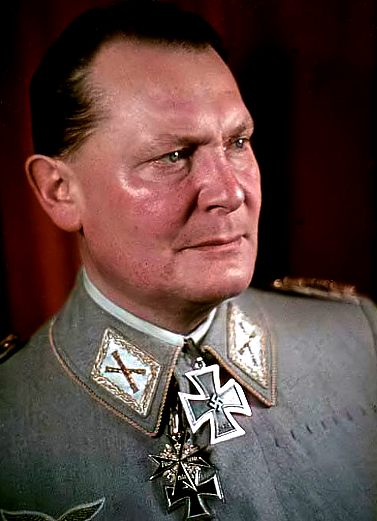
Herman
Goring
Reichsmarschall
|
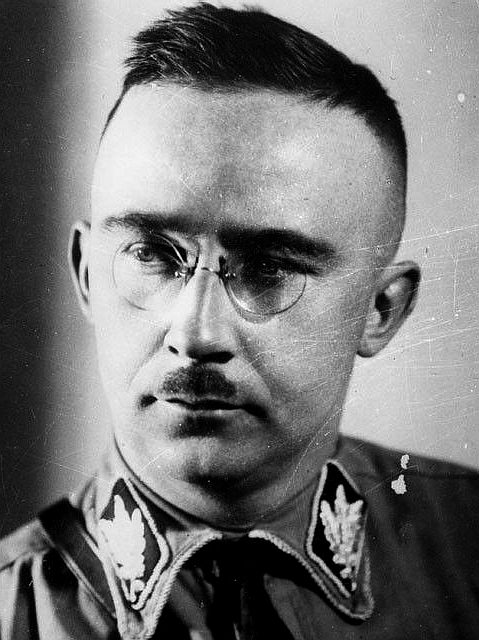
Heinrich
Himmler
Reichsführer
|
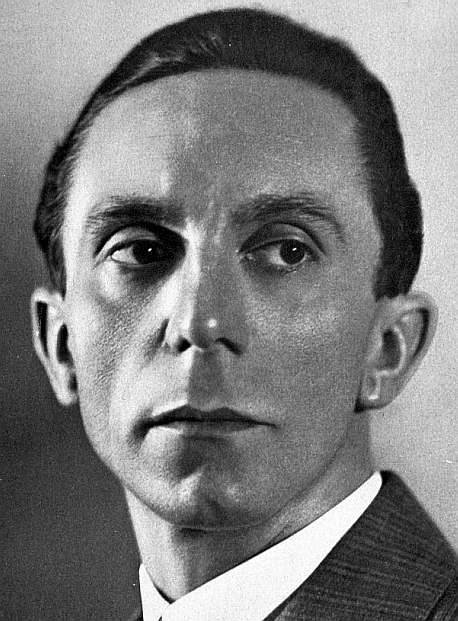
Joseph
Goebbels
Reich
Minister
|
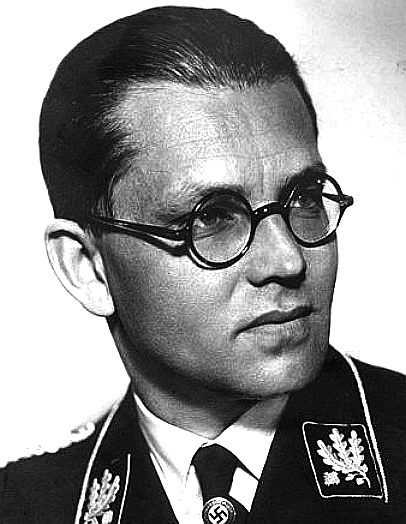
Philipp
Bouhler SS
NSDAP
Aktion T4
|

Dr
Josef Mengele
Physician
Auschwitz
|
|
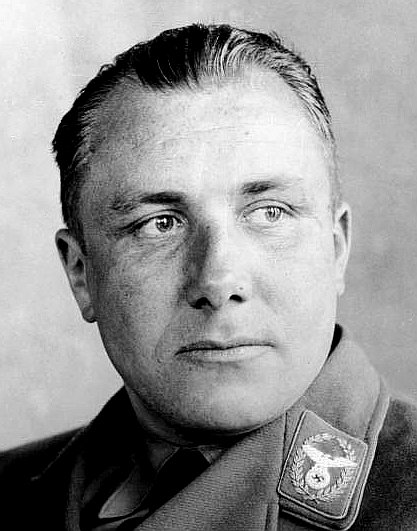
Martin
Borman
Schutzstaffel
|
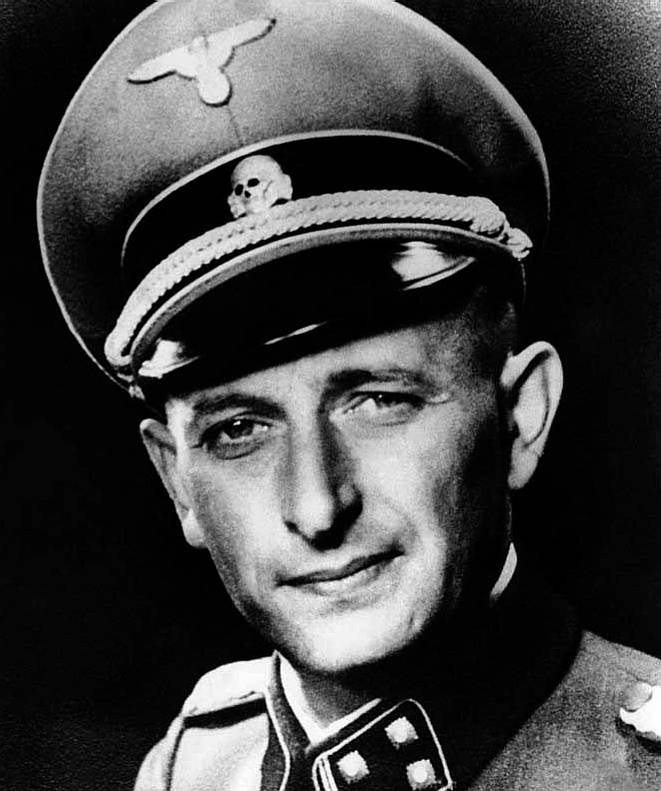
Adolph
Eichmann
Holocaust
Architect
|
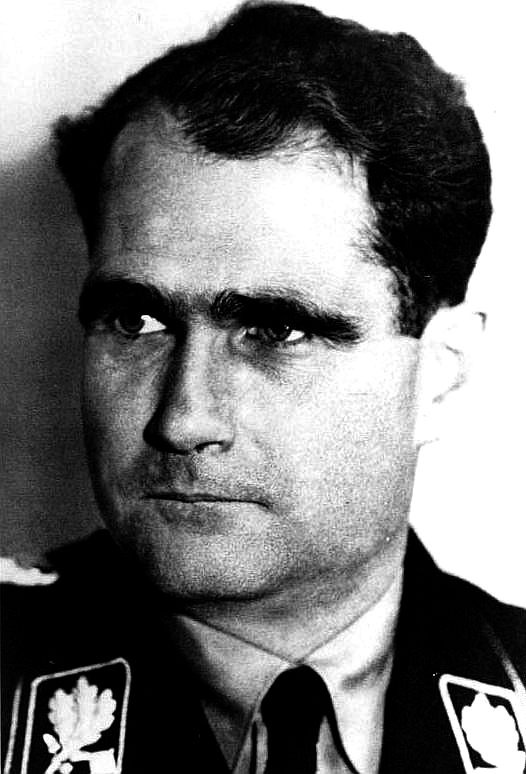
Rudolf
Hess
Commandant
|
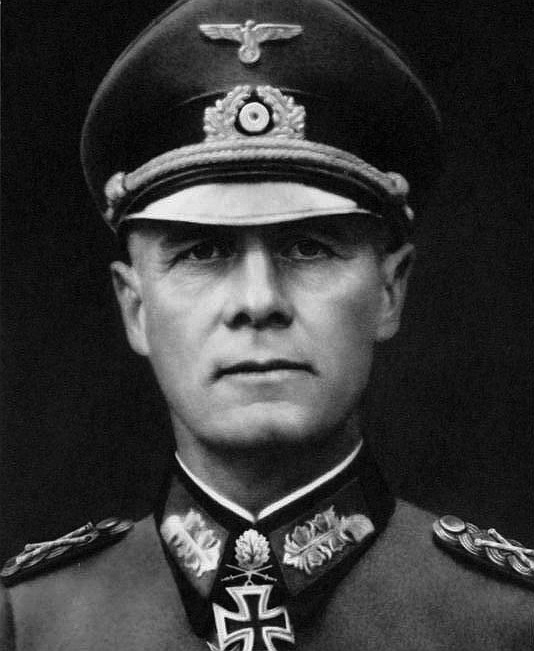
Erwin
Rommel
The
Desert Fox
|
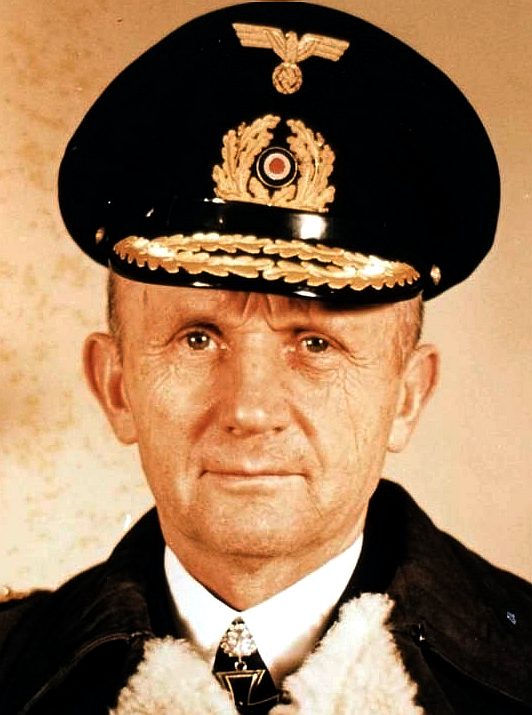
Karl
Donitz
Kriegsmarine
|
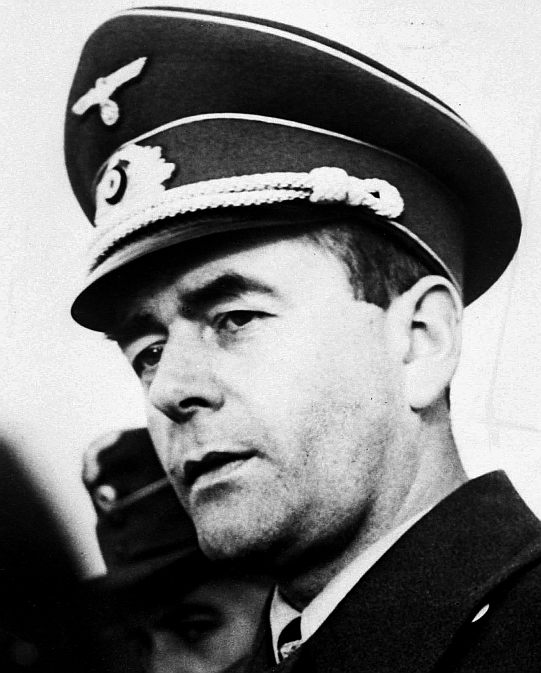
Albert
Speer
Nazi
Architect
|
SOCIALISM
TODAY APRIL
1999
Conventional history teaches us that Britain can be proud of its role in
World War Two: the entire nation stood up as one to defend democracy and the rights of smaller nations, and to defeat the tyranny of fascism.
If you hold this view, reading The Chamberlain-Hitler Collusion will shock. You will find out that the British ruling class found nothing abhorrent in the Nazis. They welcomed Hitler's regime (as they did Franco's and Mussolini's), encouraged
Germany to re-arm, and fully expected to work in alliance with it, right up until 1939. The book dispels the idea that Chamberlain desired a deal with Hitler because he was
naive or wanted to avoid bloodshed. Indeed much of Chamberlain's hopes rested on encouraging Germany to go to war - against the Soviet Union.
The authors also don't miss the chance to show how incompetent the ruling class can be. At several key moments, Chamberlain was hard to find because he was shooting grouse. His foreign secretary only agreed to do the job on condition that he could carry on his shooting on Saturdays, and another adviser felt that Hitler's foreign minister could be trusted because, 'he talks English very well'! The book is a little weaker, however, at exposing Churchill's fascist sympathies. These details combine to give an interesting insight into the workings of international diplomacy. As early as 24 October 1933, shortly after Hitler became Chancellor, the British ambassador to Germany was informed that Germany will "seek a certain expansion in Eastern Europe". Britain making no comment meant that this was accepted.
Sir Nevile Henderson, Britain's ambassador to Germany between 1937-39, wrote in October 1939 that, "There are in fact many things in the Nazi organisation and social institutions… which we might study and adapt to our own nation and old democracy". As for Hitler, "if he had known when and where to stop: even, for instance, after Munich and the
Nuremburg decrees for the Jews", he would be acclaimed as a great world leader.
'Knowing where to stop' was the key. The Nazis could have a free hand in Eastern and Central Europe. The British ruling class could accept Hitler's actions in Austria, Czechoslovakia, etc. They could accept it up until the point Nazism threatened the 'West', (ie Britain's markets and colonies).
Certain passages show how issues were presented very differently for private and public consumption. A few days before Chamberlain was due to make a strong statement against Germany's invasion of Czechoslovakia he sent word to the Nazis by several channels to ignore these comments and that their previous privately-negotiated position still held. Democracy has never been high on the ruling class's agenda.
Chamberlain saw the public as:
"an immense mass of very ignorant voters of both sexes whose intelligence is low and who have no power of weighing
evidence".
The British ruling class was keen for Germany to re-arm because they saw in the Nazis a natural ally and potential saviour against communism. Chamberlain wrote to the King expressing the idea that Germany and England would be "the two pillars of European peace and buttress against communism". When in 1936 the Rhineland was re-militarised the cabinet actively opposed French plans to stop it. Cabinet minutes show that they felt that if the French plans succeeded Hitler would be overthrown and the German communists would benefit.
This became the constant refrain of the Chamberlain government. They would justify Germany's invasion of Austria in February 1938 on the grounds that the two countries had decided to peacefully unite. Hitler was told that, because of the large Sudeten German population in Czechoslovakia, Britain would not oppose 'her next goal' - invasion. Britain was, however, concerned that he act in such a way as to minimise public concern!
Manipulating public opinion was constant. During September 1938 Chamberlain had three meetings with Hitler, each lasting several days. Two days before the last meeting in Munich he announced the distribution of gas masks and the digging of trenches. These orders had no military value but were designed to induce support for a deal.
In fact, everything was subordinated to this goal. When reports of 'Kristallnacht' (the pogrom against the Jews) reached Chamberlain he exclaimed: "Oh, what tedious people these Germans can be! Just when we were beginning to make a little progress". Like Austria or Czechoslovakia it was not the Jews he was concerned for but that it would make an alliance more difficult to forge.
Hitler was bothered by public opinion too. He was concerned that, whilst he may be able to strike a deal with Chamberlain and the ruling class, they would not be able to stick to it. Interestingly, the book says the great irony was that the change in Britain's positive attitude to the Nazis was not brought about by the annexing of more territory but by Hitler actually conceding some! The book even points to an exact day when policy began to alter. On the morning of 17 March 1939 Henderson met his German counterpart to discuss the best way of excusing Germany's action in Czechoslovakia. Yet, by the evening, Chamberlain declared Germany's action illegal! What changed? Britain heard that the Nazis had agreed to cede the former Czech province of Ruthenia to Hungary. This
signaled that Hitler had put on hold plans to attack the Soviet Union and was most likely looking West.
The British ruling class had staked too much to simply give up on the idea of a pact. But from now on they pursued a 'double-barrelled' strategy of continuing secret negotiations while preparing for conflict. Some of these negotiations were aimed at 'moderate' Nazis like
Goering. 'Moderate' meant that they may be convinced to look East rather than West!
The aptly-titled chapter, A Confusion of Enemies, details the great lengths to which Britain went, despite being officially at war with Germany, to get an agreement with the Nazis to wage war on the Soviet Union. Britain and France sent thousands of troops and bombers to Finland hoping it may provide an excuse to undermine the entire Soviet Union.
The authors are a bit timid to see the class (they tend to use the word 'elite') relations at play. Of course, the British ruling class has all the most vile prejudices: Henderson said, "I would view with dismay another defeat of Germany which would merely serve the purposes of inferior races". But the main factor in seeking an alliance with the Nazis was economic - to divide up spheres of influence to suit the rich of both countries.
Reading this book you are sometimes left wondering if the authors would have been happier had the British ruling class waged war earlier on Germany. They are, therefore, in danger of missing the point that all ruling classes will use any method to defend private property. Viscount Amery, former colonial secretary, tells us he has some misgivings about fascist dictatorships but they "may well have a future not as a substitute, but as a compliment and corrective to purely arithmetical democracy". Here you have the cold, calculating voice of capitalism. Particularly with the enormous postwar strengthening of the working class, the ruling class would be loathe to hand over control to fascists. They burnt their fingers with Hitler. Nonetheless, dictatorial methods - and the fascists - are held in reserve.
This also means the book doesn't clearly identify the working class as the only force that can challenge and prevent dictatorship and fascism. The authors proceed a little in this direction when they say it was not the voice of the elite but the people who stood against Hitler. The purpose of studying this period of history must be precisely to politically re-arm our class and in this, perhaps, the book falls short. But if it helps provide the facts to make the case against fascism then, maybe, it is worth an hour or two of your time.
The Chamberlain-Hitler collusion, by Alvin Finkel and Clement Leibovitz, The Merlin Press Ltd., 1998.
Reviewed by Paul Ursell

MUNICH
- Nice chaps these Germans and they speak such good English, obviously
trustworthy, like our civil servant planners at Wealden. By Jove they
know how to show a chap a good time. Mark my words.
UK
POLITICS
The
United Kingdom has many political parties, some of which are
represented in the House of Commons and the House of Lords.
Below are links to the websites of the political parties that were
represented in the House of Commons after the 2015 General Election:
CONSERVATIVE
PARTY
CO-OPERATIVE
PARTY
DEMOCRAT
UNIONIST PARTY
GREEN
PARTY
LABOUR
PARTY
LIBERAL
DEMOCRATS
PLAID
CYMRU
SCOTTISH
NATIONAL PARTY
SINN
FEIN
SOCIAL
DEMOCRATIC AND LABOUR PARTY
UK
INDEPENDENCE PARTY
ULSTER
UNIONIST PARTY
Conservative
Party
Co-operative
Party
Democratic
Unionist Party
Green
Party
Labour
Party
Liberal
Democrats
Plaid
Cymru
Scottish
National Party
Sinn
Féin
Social
Democratic and Labour Party
UK
Independence Party
Ulster
Unionist Party
We
are concerned with how the make up of the above parties and (reasonably)
popular policies may affect the Wealden district, because we are all
brothers on two islands in the Atlantic
Ocean and what we do or fail to do is likely to rebound on ourselves
and our fellow man in other nations around the world. How we act today
influences policies in other countries in our global community. It is
not just about us and our patch.
DISTRICT
& BOROUGH COUNCILS
East
Sussex has five District and Borough Councils, each with a border on
the coast. From west to east they are:
Eastbourne
Borough Council
Hastings
Borough Council
Lewes
District Council
Rother
District Council
Wealden
District Council
There
is also East
Sussex County Council as the provider of services to the 5 East
Sussex districts.
As
near neighbours and with councils now sharing facilities and working
together, these area of Sussex are included in our remit and an area
where climate
change and affordable
housing are issues that need urgent attention. Where the coastline
is a feature in every Council, Blue
Growth is a food
security issue, especially where this side of of our local economy
is under-exploited.




















































